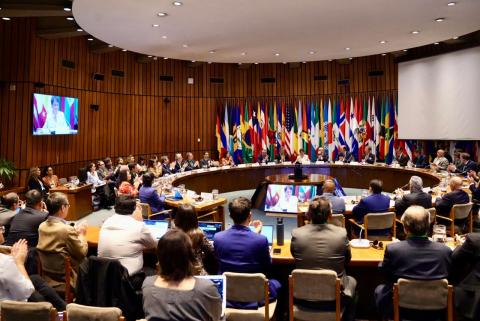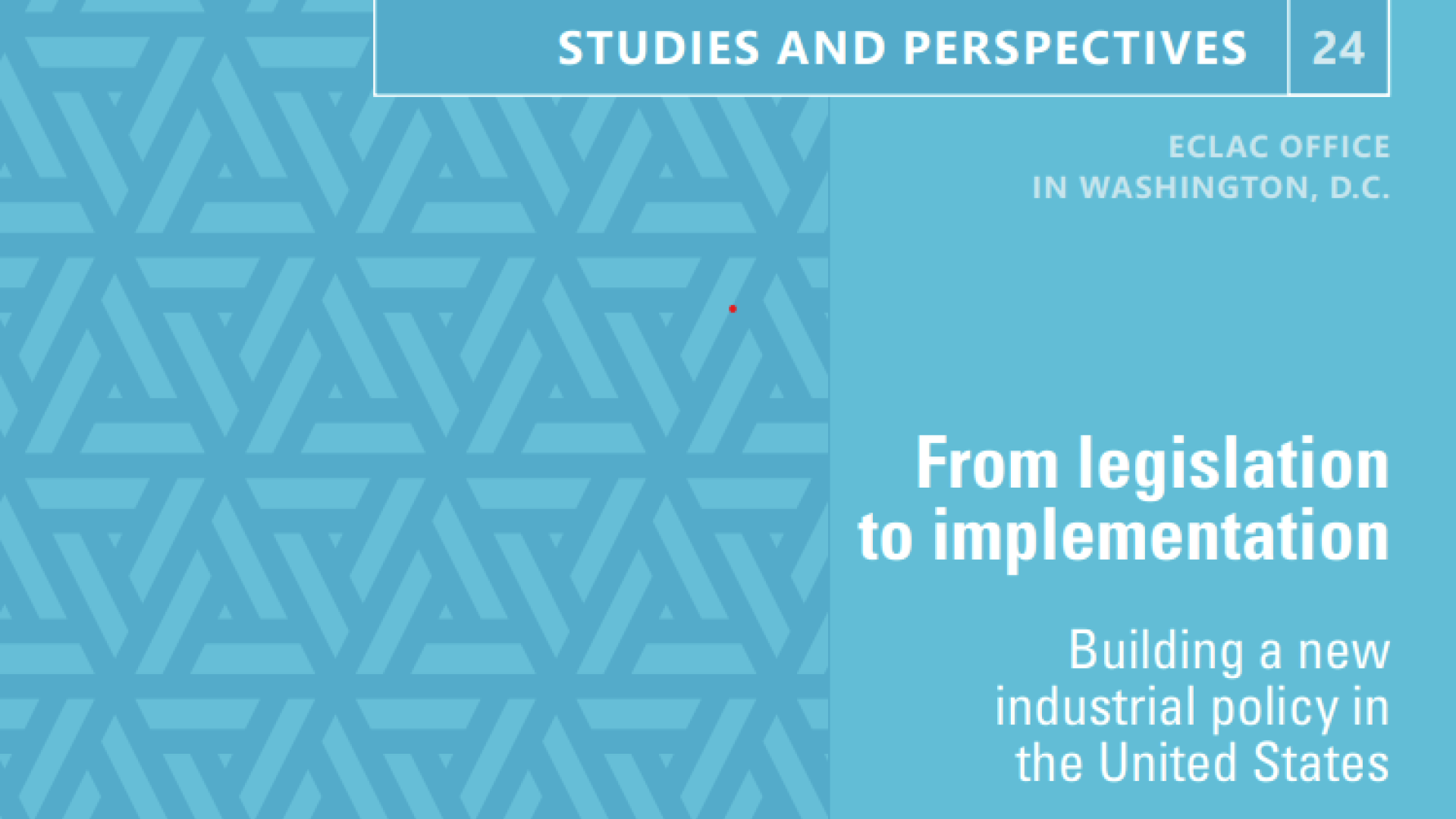Speech
Although the region has numerous initiatives aimed at integrating infrastructure matters in Latin America and the Caribbean, further action must be taken to promote a unified regional vision to confront development challenges in this area.
According to ECLAC's research, investment in infrastructure is insufficient to cover the economy's needs and demands and an annual layout of 6.2% of gross domestic product (GDP) would be needed through 2020 to settle this debt.
During the meetings of the Council of Ibero-American Road Directors (DIRCAIBEA) and the World Road Association (AIPCR/PIARC), which were held at ECLAC's headquarters in Santiago, Chile on October 27-30, 2014, experts from this United Nations regional commission stressed that countries must not only bolster national investment but they should also boost the interconnection and specialization of some types of economic infrastructure (especially in the areas of transportation, energy and telecommunications) to tend to the regional market.
This would enable them to solve the infrastructure deficit in a better way, promote greater social equality and reduce asymmetries between countries, according to ECLAC.
Recent figures show that in the period 2007-2012 the primary road network grew 8% in the region (among countries that are part of CELAC) and registered increases in all subregions (see graphic). This expansion in connectivity provides the entire population with greater access to the labor market and to basic health and educational services.

Nevertheless, ECLAC emphasizes the need to coordinate regulations and policies at a regional level to take full advantage of the benefits of integration and thereby foster sustainable, inclusive and equitable economic and social development for the entire region.
To that end, the Natural Resources and Infrastructure Division of this organization, in conjunction with other ECLAC units, is working on different initiatives related to national logistics and mobility policies in several countries, among them Nicaragua, El Salvador and Honduras. It is also advising entities such as the Central American Economic Integration Secretariat (SIECA), the Mesoamerica Project, the Union of South American Nations (UNASUR) and the Community of Latin American and Caribbean States (CELAC), with the aim of promoting a regional integration strategy.


